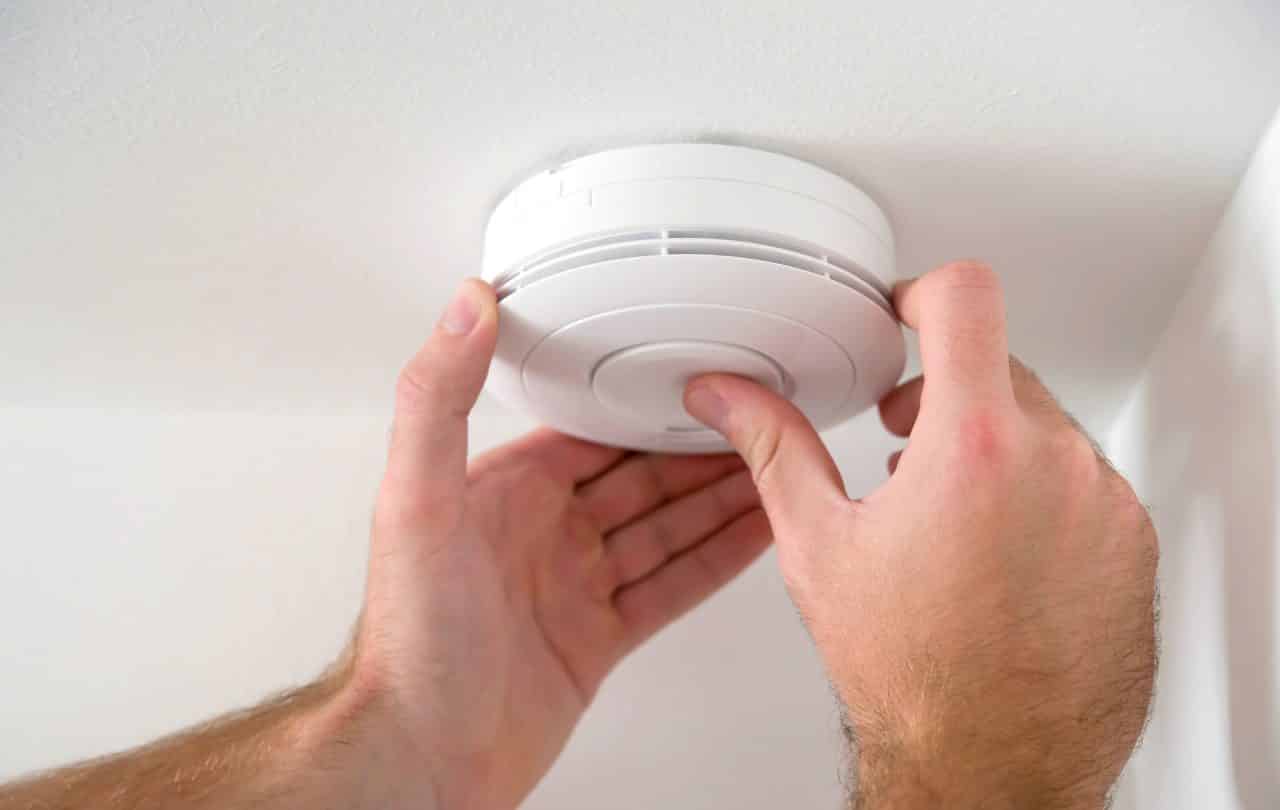If you have a working smoke detector in your home, you’re much safer from harm. In fact, according to the National Fire Protection Association, your risk of dying by fire falls by 55% when there is a working smoke alarm present.
But for people with hearing loss, blaring smoke alarms may not be enough. Fortunately, there are other options, which we review below.
Smoke Alarms for People with Hearing Loss

There are several types of smoke alarms that work well for people with hearing loss, including:
- Strobe light alarms. Rather than relying on sound, strobe lights provide a visual cue that there’s smoke in your home. If you’re using one of these in your bedroom, make sure you get one with a high enough intensity to wake you up.
- Vibration. You can also invest in smoke alarms that vibrate your pillow or your bed in order to wake you up if there’s a fire at night. These are sometimes referred to as “bed shakers.”
- Interconnected alarms. With interconnected systems, when one alarm goes off, they all do, giving you a better chance of being alerted there’s danger.
- Low-pitch alarms. Many people with hearing loss have trouble with high frequencies but can still hear lower frequencies. For this population, an alarm that emits a mixed, low-pitch sound may be appropriate.
Other Considerations
Some other considerations to be aware of when shopping for smoke alarms are:
- Make sure it’s from a reputable company. Look for an alarm that’s been tested by a reputable laboratory, such as UL. BRK Electronics, Gentex Corporation, Kidde Fire Safety, and Menards, Inc. are all good brands.
- Test them regularly. A smoke alarm does no good if the battery is dead or it’s not working properly. For this reason, make sure you test the regularly; perhaps even weekly.
- Get more than one. You should have a smoke alarm in each level of your home, including one in every bedroom.
- Talk to the experts. If you’re not sure how to proceed or what type or brand of device to get, talk to the experts at Plano Fire-Rescue.
For more information or to schedule an appointment, call Sharp Hearing – The Audiology Center today.

